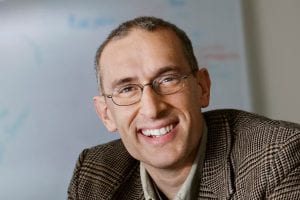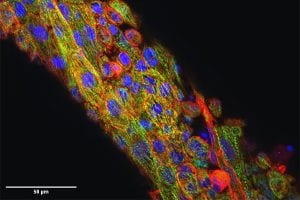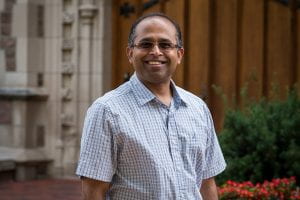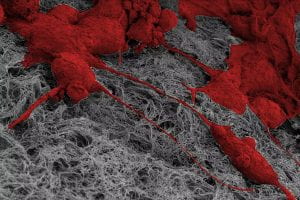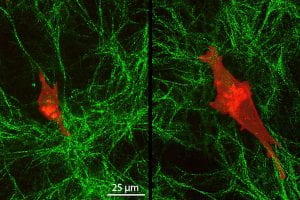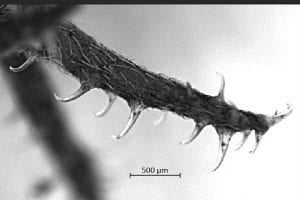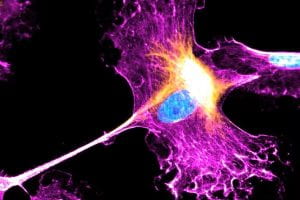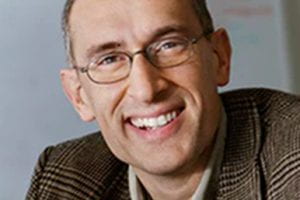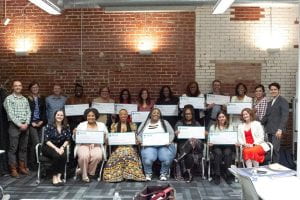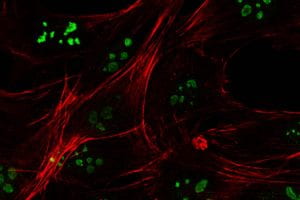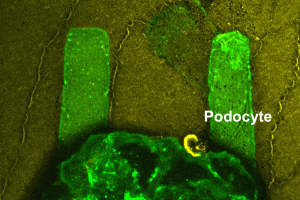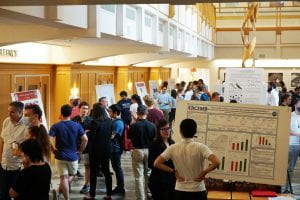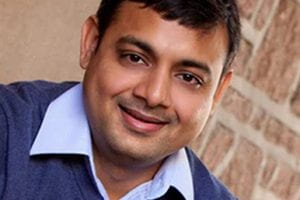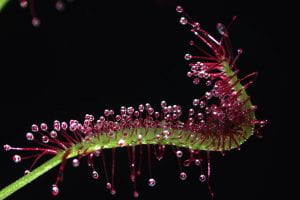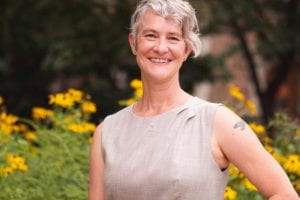Genin elected to the Board of Directors of the Society of Engineering Science (SES) (Links to an external site)
The society strengthens the interface between engineering, science and math
Virtual drug quiets noise in images of heart tissue (Links to an external site)
Research in labs of mechanobiology faculty members Nate Huebsch, Guy Genin creates software to enable experiments for learning how electrical and mechanical heart functions relate
Welcoming Dixit as Biology Department Chair (Links to an external site)
Ram Dixit mechanobiology faculty member shares his excitement about taking over as Biology Department Chair.
Environmental memory propels collective cell migration (Links to an external site)
Researchers in Amit Pathak’s lab found that cells learn from past environments to promote future invasions
Cancer cells penetrate deep into their environment (Links to an external site)
Amit Pathak’s lab finds cancer cells have remarkable ability while healthy cells do not
Hitchhiker plants inspire improved techniques for reattaching tendon to bone (Links to an external site)
A multi-university team of researchers working with Guy Genin at the Center for Engineering MechanoBiology explore new approaches to surgical tendon-to-bone repair
Cells take on dual identities with competing factors trapped in the nucleus (Links to an external site)
Research in Amit Pathak’s lab reveals new cell migration behavior
Guy Genin named to National Academy of Inventors
Guy Genin, the Harold and Kathleen Faught Professor of Mechanical Engineering at the McKelvey School of Engineering was elected to the National Academy of Inventors (NAI).
Student-led biotech consulting group brings science beyond the bench (Links to an external site)
WashU researchers observe cancer-like nucleoli in healthy cells (Links to an external site)
Discovery in Amit Pathak’s lab connects mechanobiology to nuclear condensates
New technology offers pathways to finding treatments for kidney disease (Links to an external site)
McKelvey Engineering, School of Medicine collaborate to develop hydrogel system
Undergraduate researchers celebrate at STEM Poster Palooza (Links to an external site)
The multidisciplinary poster session offered an opportunity for emerging researchers to develop their presentation and communication skills
Cell memory’s role in migration to new tissues explored (Links to an external site)
Amit Pathak’s lab will incorporate imaging, modeling to study cell migration
Best offense is a great defense for some carnivorous plants (Links to an external site)
Insect-eating plants have fascinated biologists for more than a century, but how plants evolved the ability to capture and consume live prey has largely remained a mystery. Now, scientists at Washington University in St. Louis and the Salk Institute have investigated the molecular basis of plant carnivory and found evidence that it evolved from mechanisms plants use to defend themselves.
Elizabeth Haswell Elected Fellow of the American Association for the Advancement of Science (AAAS) (Links to an external site)
Elizabeth Haswell, one of eight faculty members at Washington University in St. Louis, is among the 564 new fellows selected by the American Association for the Advancement of Science (AAAS), the world’s largest general scientific society and publisher of the Science family of journals.
